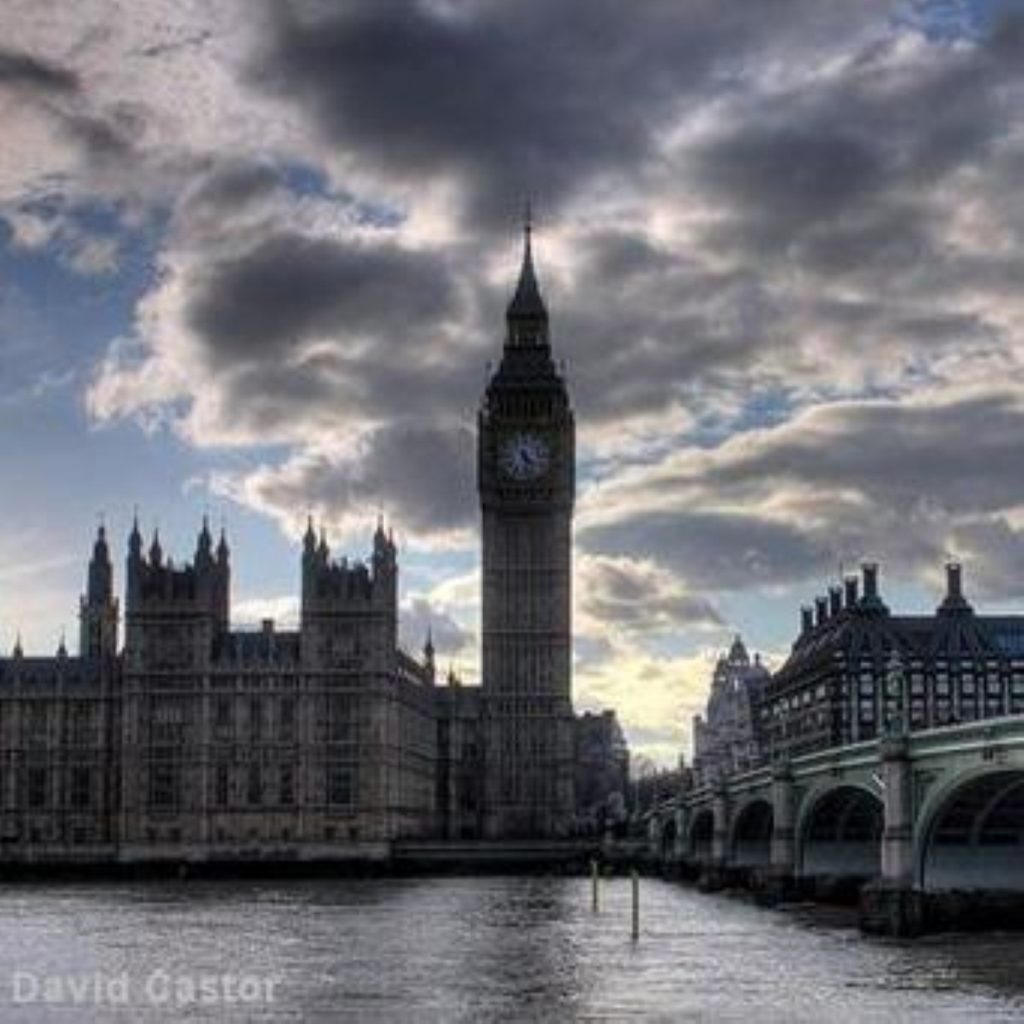Tories wracked by mass EU revolt
By Alex Stevenson Follow @alex__stevenson
The coalition government has suffered its worst rebellion by Conservative backbenchers, at the end of a divisive Commons day for the Tory party.
One hundred and eleven MPs voted in favour of the motion calling for a referendum on Britain's membership of the European Union.
With 25 Labour MPs thought to have rebelled, there were thought to be 79Tory backbenchers who had defied the pleas of the government whips.
The debate was punctuated by defiant Conservative MPs vowing to defy the three-line whip imposed on them by the government.
It began with a plea from the prime minister for party loyalty, as he argued that the ongoing eurozone crisis meant a referendum on Europe now would be extremely bad timing for Britain.
"When your neighbour's house is on fire, your first impulse should be put out the flames, not least to stop the flames reaching your own house," Mr Cameron told MPs.
"This is not the time to argue about walking away, not just for their sakes, but for ours."
A string of Tory MPs lined up to disagree with him, however, including ministerial aides Stewart Jackson and Adam Holloway.
They were forced to relinquish their government jobs as a result. Mr Holloway said: "I'm not prepared to go back on my word to my constituents. I'm really staggered that loyal people like me are being put in this position."
Mr Jackson said: "Loyalty runs through my veins to the Conservative party… it's more in sorrow and anger that I go today, because I support this government. I need no lectures on loyalty from some people.
The rebels were led by David Nuttall, who tabled the motion. It proposed a referendum giving the British public three options: maintaining the status quo, refocusing the terms of Britain's involvement in Europe on "a relationship based on trade and cooperation" or leaving the EU altogether.
"The tentacles of the European Union are spreading to more and more areas of our national life," he warned, at the start of a debate lasting over five hours.
The motion, triggered by an e-petition which attracted over 100,000 signatures, was non-binding and Labour had pledged to reject it, meaning a government defeat on the issue was not a possibility.
But many eurosceptic Tory MPs, frustrated by the coalition government's reluctance to seek a repatriation of powers from Brussels to Britain, were determined to take a stand regardless.
The government had brought the debate forward from Thursday to today so that the prime minister and foreign secretary William Hague could be present, lending their authority to whips' efforts to enforce party discipline.
A number of the ringleaders received phone calls from the prime minister over the weekend in which he has asked them to reconsider.
One ministerial aide, Mark Menzies, was reportedly taken ill as he met with the prime minister. He was thought to have fainted.
No 10 refused to confirm the story, but a spokesperson said: "It was a very hot room."
The government made clear its position over the weekend as senior ministers restated the position again and again.
Mr Hague, writing in the Telegraph newspaper on Saturday, argued: "As a Conservative, I want to bring powers back from Europe, as we set out in our election manifesto. But a referendum on Britain's membership of the EU, especially at this time of profound economic uncertainty, is not the answer."
One of the ministerial aides who was thought to have been wavering, Aidan Burley, ended up speaking minutes before the vote on the side of the government.
"Are you willing to jeopardise the recovery?" he asked MPs, prompting a roar of derision from many of his Conservative colleagues.
Arch-eurosceptic Peter Bone concluded the debate with a summing-up speech in which he unexpectedly praised Mr Cameron.
"If it was not for the prime minister, we would not have the backbench business committee," he said.
"If it was not for the prime minister, we would not have petitions… I am going to take the advice of my prime minister to be independent-minded, to put the country first and to put narrow party interest first."





-01.png)